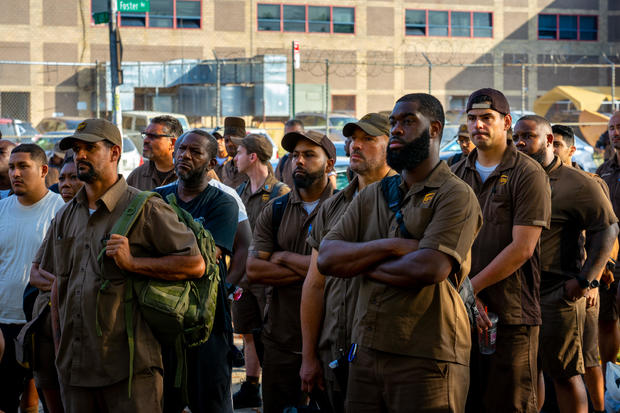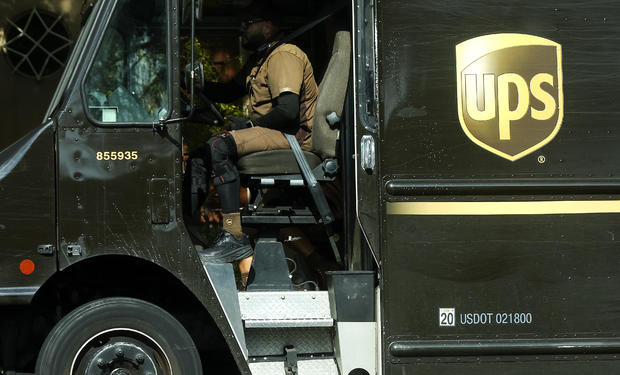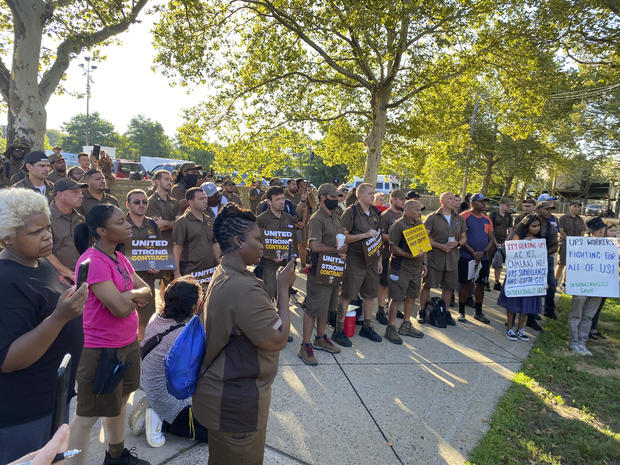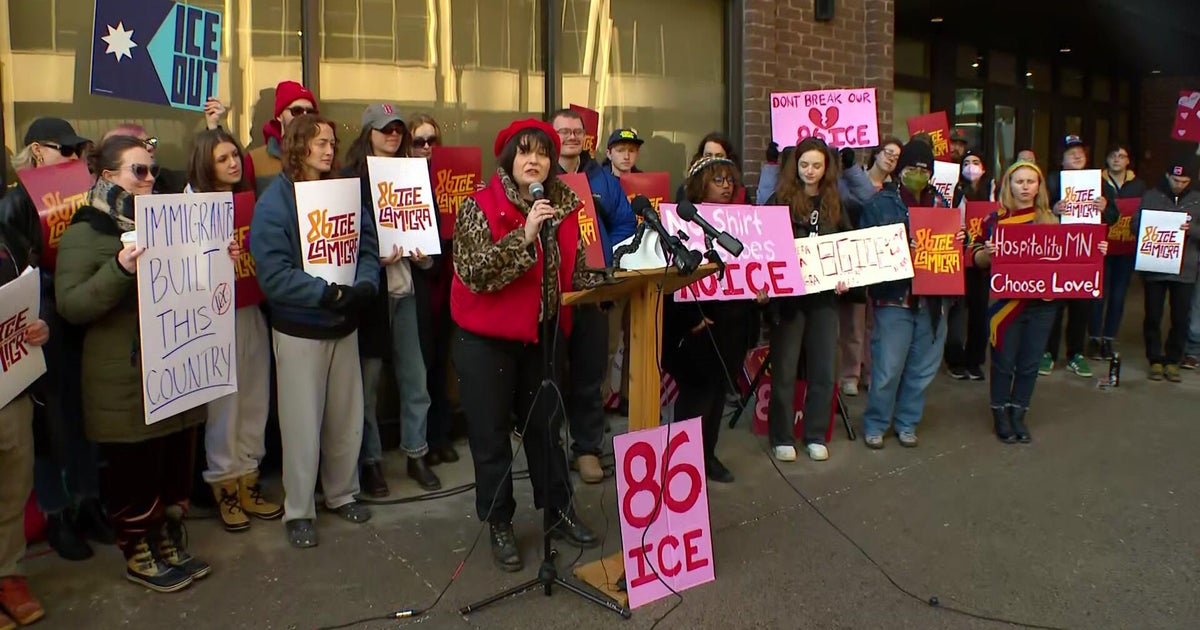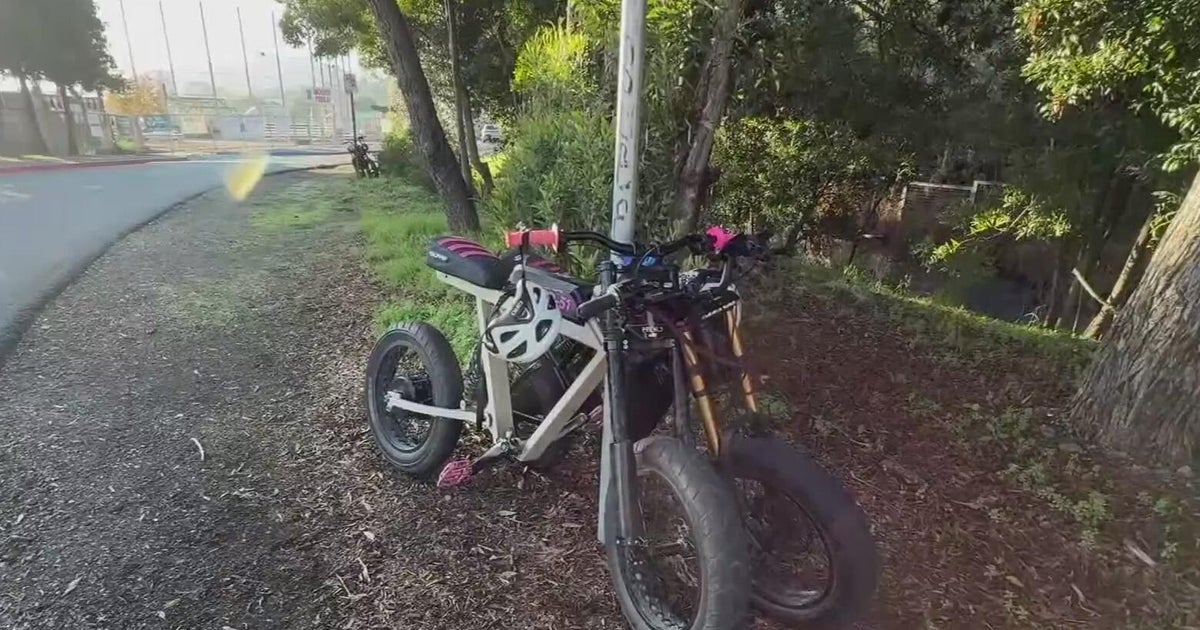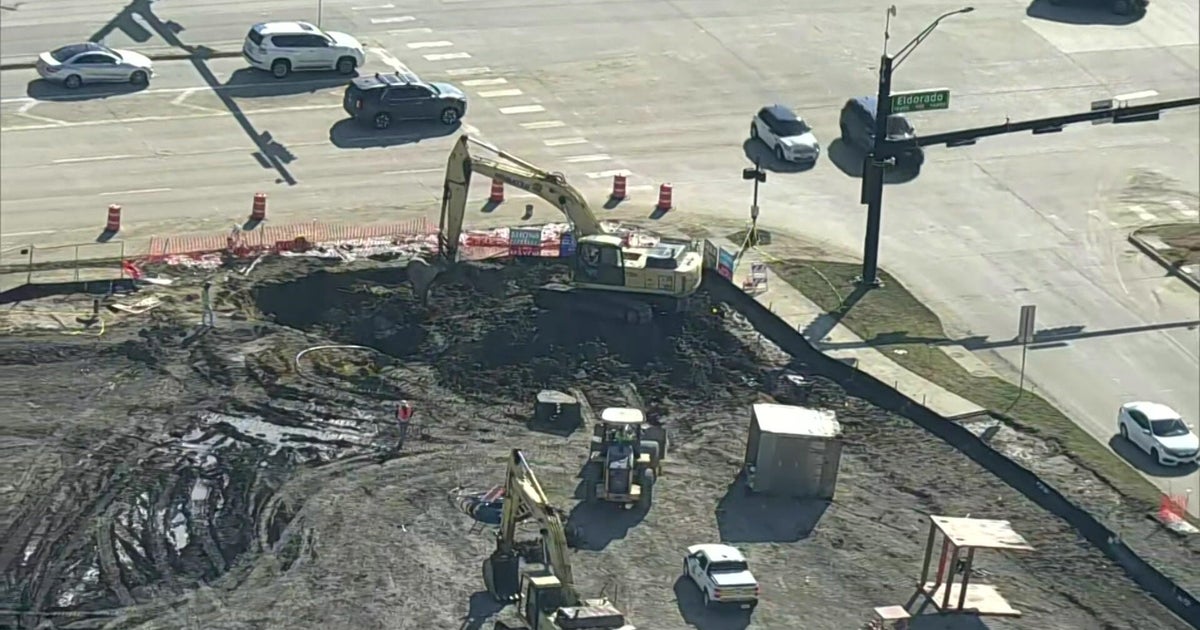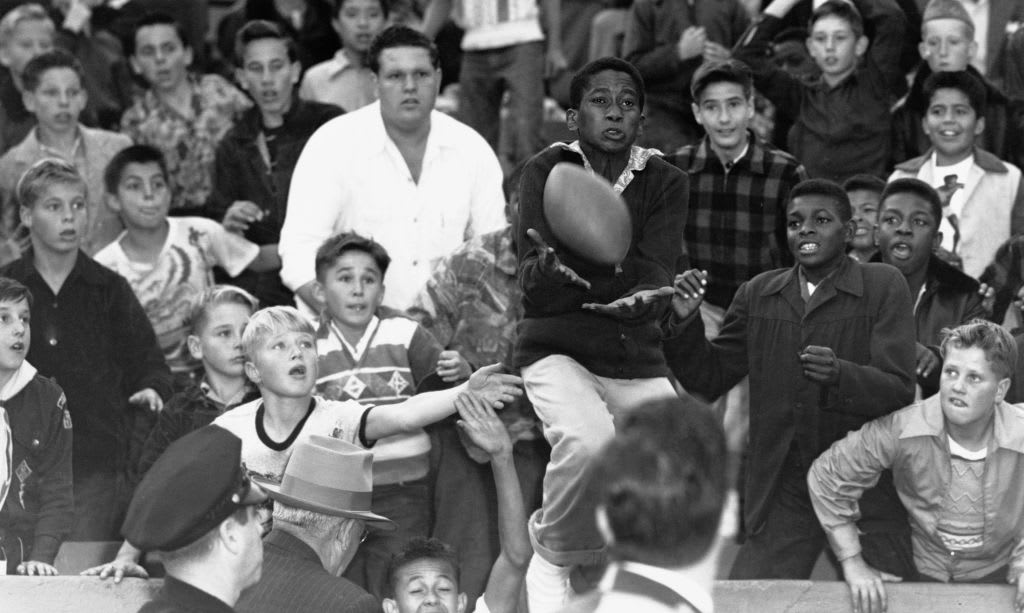UPS drivers demand safety protections amid ferocious heat waves
When UPS truck driver Dwight started working for the shipping giant in 1998, he complained to his manager about the heat on the job, which was unbearable during long summer shifts. Dwight recalls his manager replying with an expletive: "Look at this f---ing rookie, complaining about the heat!"
In the nearly quarter of a century since then, conditions haven't improved for Dwight, who said making deliveries on his New York City route in blazing summer temperatures has sometimes brought him close to heat exhaustion. (Like several drivers interviewed for this story, Dwight declined to give his last name for fear of retaliation by the company.)
"There's times where because of the heat, I felt dizzy, had to pull over and get out of my truck," he told CBS MoneyWatch.
Heat complaints are widespread among UPS drivers, many of whom say they have even had difficulty getting a fan installed in their trucks, which are not air-conditioned. Now, the labor union representing UPS workers is taking up their cause.
In a letter to UPS' vice president of labor relations on Monday, an official with the International Brotherhood of Teamsters demanded information about the company's response to recent heat-related illnesses affecting UPS employees.
Included among the slew of documents requested by the union is information on UPS' procedures during a heat advisory; its plans to acclimatize drivers to the heat; the availability of personal protective equipment, first aid kits, water and ice machines; and hazard assessments for all jobs in which workers are at risk of excessive heat.
Teamsters are also holding rallies at UPS centers across the nation this week as the union prepares to renegotiate its contract, which expires July 31, 2023.
"UPS executives sit inside their air-conditioned, C-suite offices all day while UPS Teamsters endure some of the most intense weather conditions imaginable, and this corporation needs to own up for what it is or is not doing to protect these workers," union President Sean O'Brien said in Monday's missive.
Heat stroke cases at UPS increase nationwide
Officials at Teamsters Local 804, which represents UPS workers in New York City, expect to push for heat-related work protections in the new labor contract.
Chris Williamson, vice president at Teamsters Local 804, based in Long Island City, said he's aware of roughly 15 cases of heat-related sickness among workers, but said the real tally is likely higher because many are afraid to report illnesses.
During last month's heat wave, six drivers fell ill on the job, according to local news outlet The City. A seventh driver, Edwin Irizarry, felt sick and experienced a tingling sensation in his arm — a possible symptom of heat exhaustion — while driving his route in lower Manhattan. The driver's manager told him not to call an ambulance, multiple union officials told CBS News and as detailed in their letter to the company.
Instead of an ambulance, Irizarry's manager drove him to an urgent care center, which referred Irizarry to a hospital. Once there, his supervisor tried to claim Irizarry's illness wasn't covered by worker's compensation. (A company spokesperson declined to comment on the cases, saying they lack specific information.)
Heat-related illnesses threaten UPS workers nationwide. A driver in Scottsdale, Arizona, collapsed while delivering a package on a 110-degree day. (The driver has since recovered and is working again, a UPS spokesperson said.) In June, in Pasadena, California, 24-year old UPS driver Esteban Chavez collapsed and died, with his family blaming his death on the soaring temperatures, according to Los Angeles TV station KTLA.
"How many more members have to die before they take it seriously?" Williamson asked. "With global warming, it's getting hotter and hotter. It's ridiculous that this company that makes millions and millions of dollars doesn't want to put AC in the trucks," he said.
UPS has said that installing air conditioning in delivery trucks is unfeasible because of the many stops drivers typically make on their routes.
"Our package delivery vehicles make frequent stops, which requires the engine to be turned off and the doors to be opened and closed, about 130 times a day on average," spokesperson Matthew O'Connor said in a statement. "We have studied heat mitigation with our vehicles and integrated forced air systems with venting to create air flow around the driver and cargo areas. We optimize the roof of vehicles to minimize heat in the cargo area, alongside insulating the roof of the cab. We also offer fans to drivers upon request."
UPS also said it invests more than $260 million per year on safety programs, including training on working in hot weather.
"The health and safety of our employees is our highest priority. UPS drivers are trained to work outdoors and to manage the effects of hot weather. Preparation, rest, hydration and maintaining good health practices are key to working outdoors," the company said.
"You're just a number here"
But many of the drivers who spoke with CBS MoneyWatch said managers reprimand them for taking breaks to drink water or cool down, and that getting a fan for their truck is nearly impossible.
"They tell yo if you don't feel good, if you feel like you're going to pass out, take a minute. But yet the next day they say, 'What were you doing this time [and] this time, when you weren't doing work for 5 minutes?'" said Andrea, a New York-area driver with UPS who said he has been with the company for 14 years.
Unrelenting time-keeping by UPS requires drivers to make an average of 17 stops an hour — or roughly one stop every three minutes, according to Julio, a New York-area driver of 18 years. With as many as 300 packages in a single delivery, a shift can stretch into 10, 11 or 12 hours.
"It's constantly moving, it's nonstop," he said. "Any little thing you do that's not proper, they pull you in the office. And once you get hurt, forget about it — you're just a number here."
UPS drivers are sharing photos of trucks where thermometer readings show temperatures of 130 degrees or more, and emphasize that even getting a fan can be an ordeal in New York. One driver recently tweeted a picture of a request to install a fan in his vehicle that was denied, with the note "it's a corporate decision."
The driver, Elliot Lewis, said staff in the warehouse where he works, which is not air-conditioned, also requested fans and were told none were available.
"This is a billion-dollar logistics company — they could buy a hundred fans at Home Depot tomorrow," he told CBS MoneyWatch.
A UPS spokesman said the company is looking into the incident.
In addition to providing fans on request, the Teamsters are calling on UPS to offer water in every warehouse and truck and to give drivers cooling neck towels and uniform materials better suited for hot weather. The union is also pushing for drivers to be allowed to work at pace that allows them to take allotted breaks.
A company spokesperson said UPS already offers uniforms made of sweat-wicking fabric, as well as cooling towels and "electrolyte replacement" nutrition, such as sports drinks.
With summers getting hotter and heat waves becoming more intense thanks to climate change, researchers say heat-related injuries are a major danger. Every year, about 700 people die from heat-related illnesses and about 67,000 visit the emergency room due to heat exposure, according to the Centers for Disease Control and Prevention.
Those who labor outdoors — including delivery workers, construction workers and farm laborers — have 35 times the risk of dying from heat stress as indoor workers, according to one study. Lower-income workers, particularly those who are not U.S. citizens or who don't have access to health insurance, face a greater likelihood of heat-exposure on the job.
Despite the growing risks, the federal agency charged with enforcing workplace safety — the Occupational Safety and Health Administration — does not have a workplace standard for heat safety. OSHA has asked for comments as it starts to establish safety rules for extreme heat, but the process could take years before such laws are finalized.
